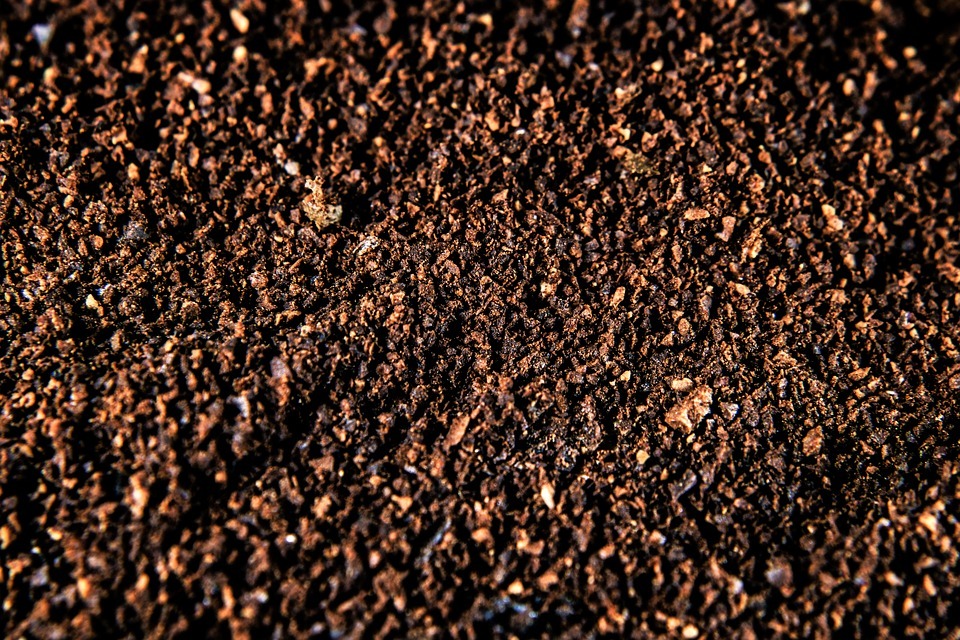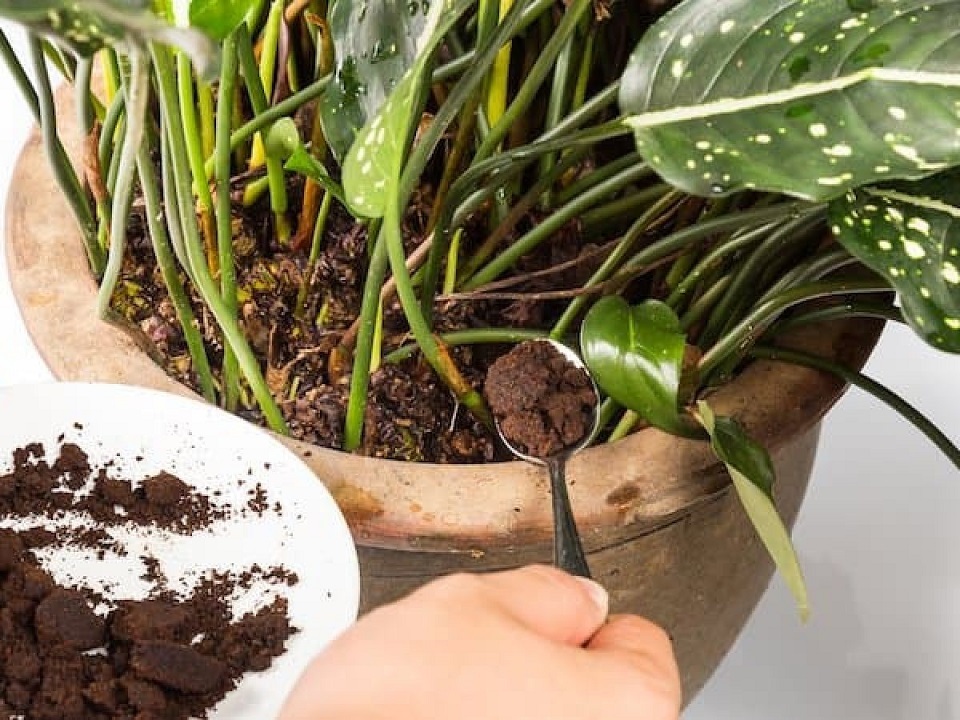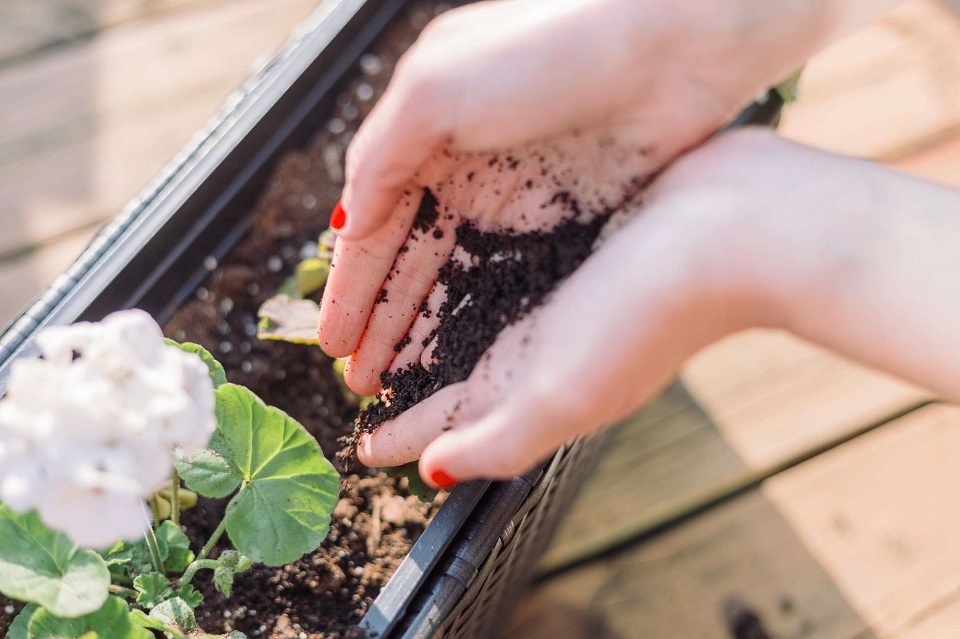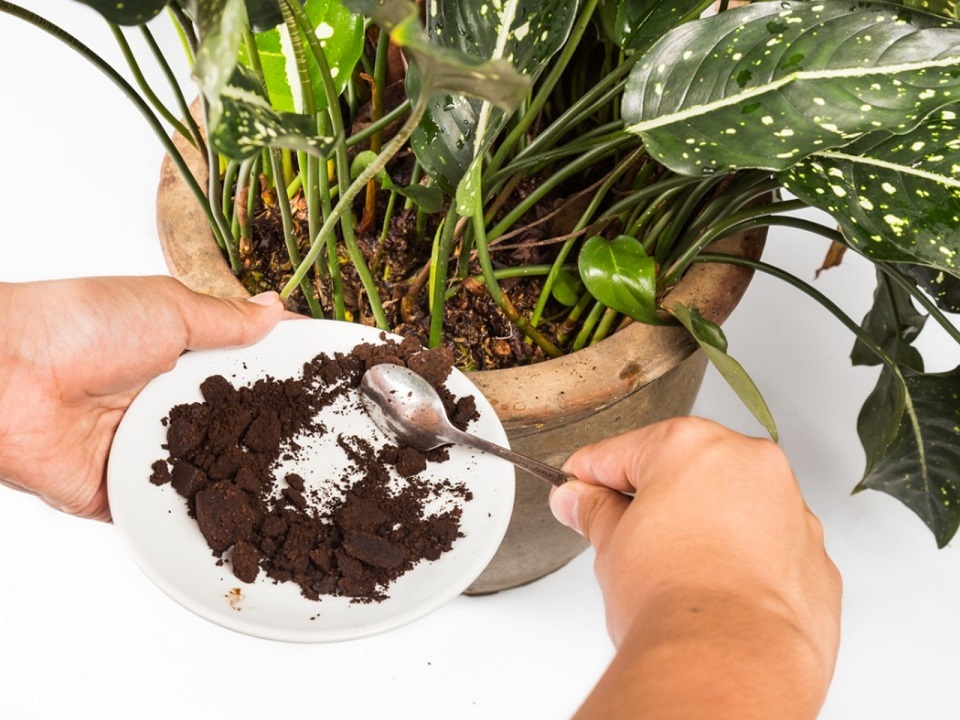Coffee grounds for plants. What’s great about coffee grounds is that they are incredibly versatile. You can use them for making a natural soap that cleans without chemicals, deodorizes, and helps you sleep better at night. In addition you can use them for a detoxifying tea. You can even use them as a food seasoning. They are also great for baking because they absorb the moisture from baked goods, and provide an extra kick of flavor. To use coffee grounds in any of these ways, you just need to start with one pound of coffee grounds and one cup of warm water. The rest is up to you.

If you’re an organic gardener who enjoys coffee in the morning, you may know that you can compost your coffee grounds to help fertilize your garden. Not only will coffee grounds enrich the soil, but they also prevent the growth of weeds. They act as a natural herbicide, making your coffee grounds perfect for potting soils. While coffee grounds do need some extra care, this is not the hard work that many people may believe it to be. That is the benefit of Coffee grounds for plants.
Coffee grounds for plants. The Amazing Benefits of Coffee Grounds

One of my favorite tips from this book is using coffee grounds to make a natural fertilizer for plants. There’s nothing wrong with throwing some ground up dirt into a flower pot—but composting is a great way to get rid of those grounds, and get something useful out of it instead.
In many parts of the world, coffee grounds are considered to be waste. In fact, some cities have a strict policy against disposing of them, because there isn’t enough land available for them to be disposed of safely. But when you take a closer look at what they can do, it’s clear that coffee grounds can be put to good use, including growing vegetables. That is the benefit of Coffee grounds for plants.
To get started, wash your dirty coffee grounds and turn them into soil for your plants. Just like with potting soil, the key to a successful garden is diversity. Coffee grounds alone won’t do the trick. Instead, you need to add a bit of compost or soil to keep the soil rich and diverse. The benefits of coffee grounds are numerous, but one major one is that it’s a very cheap and easy way to turn your dirty, nasty coffee grounds into something good for your plants. Just be sure that you don’t add too many grounds, or your plant will absorb too much caffeine.
Does coffee grounds help plants grow?

Yes but Make sure that you are using a clean coffee filter. Use only paper filters, and never use plastic ones. After you’ve washed the grounds in water, squeeze them thoroughly to remove the last bit of liquid. This ensures that the plant absorbs the grounds evenly. Next, spread a thin layer of coffee grounds in a circle in the bottom of a large pot. Don’t pack the grounds down or they’ll dry out and make the soil less hospitable to roots.
Make sure you put your coffee grounds in a garbage bag. Put the bag in a closed trash can. Make sure you have the can in an area that isn’t affected by rain. Make sure you put your coffee grounds in a place that is protected from moisture. Some coffee grounds contain caffeine. If you want to keep your home safe, don’t leave them outside in the sun.
You can use the coffee grounds for another purpose too. In addition you can make your own compost with them. You can make your own compost by taking your coffee grounds, putting them into a big container, and adding a bit of water. After you mix everything together, cover the container with a lid and put it in a dark place. In time, your compost will grow. This is a great way to use up old things that would otherwise go to waste. That is the advantages of Coffee grounds for plants.
Coffee grounds for plants. Compost can be used to enrich the soil

Coffee grounds are a great way to recycle a lot of material that you usually throw away. It’s a way to make the world a better place. Soil and compost are two materials that you can use to create compost. Compost can be use to enrich the soil, and it will also help your plants grow faster than normal. If you want to make compost at home, here’s what you need. You need to start with an airtight container, like a plastic bin. Make sure that the lid is tightly close, and that it has holes in the bottom so that air can pass through.
This way, you can create a lot of oxygen, which is a good thing for your compost. The second step is to add some carbon materials, like paper towels, old clothes, cardboard, eggshells, shredded paper, and wood chips. Be sure that these materials have well-watered so that they aren’t dry. It is also important to add a little bit of nitrogen, like peat moss, leaves, and grass clippings. This will help to feed the microorganisms that live in your compost. The last thing you need to do is to add some water. This way, everything will be moist.
In coclusion
It’s a great idea to use the grounds left over from making coffee. You can make your own compost with them. Compost is great for your soil. The more compost you add, the healthier your plants will be. You can compost just about anything you find around the house. You just need to make sure that the thing you are composting doesn’t contain any chemicals or hazardous substances.
Compost is use to fertilize your plants. Soil is considere the best fertilizer. It is what you need to feed your plants and keep them healthy. It will also help your plants grow better and stronger. Compost contains lots of nitrogen and phosphorous. These elements are very important to the growth of plants. Otherwise, There are organic compost products available. You can make your own compost by using leftover food. You can put your compost in a plastic bag and put it in the refrigerator. Then, you can add the compost to your garden or other plants in your home.